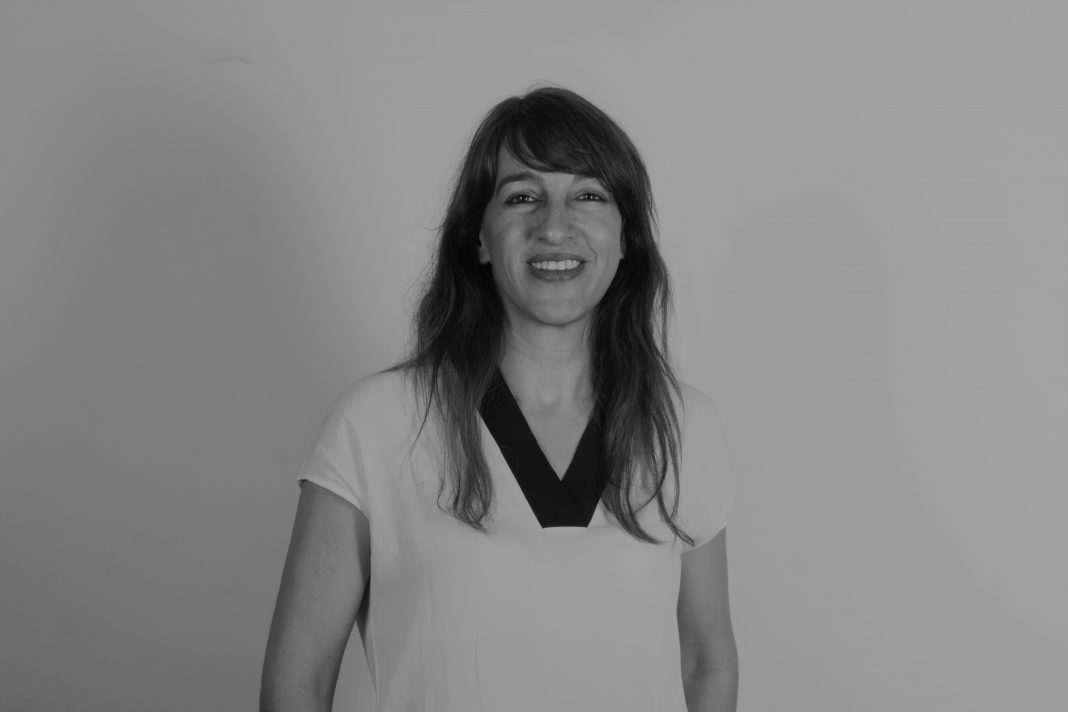Although Maria is practically our neighbor – Maria is the Business Director of UPTEC, whose headquarters are located very close to INESC TEC, where our Program is based – we couldn’t resist asking her what she has been up to. As the conversation unfolded, Maria confessed that she has a restlessness and curious soul, which led her through an expedition from zootechnical engineering to innovation, technology transfer and entrepreneurship.
Your academic journey started with a degree in zootechnical engineering, but your shift to technology transfer, science management, and entrepreneurship is quite noticeable. Was entrepreneurship something you always strived for or was there a trigger that made your career aspirations change?
I have always had this restlessness or curiosity to explore different areas. Even in my short 4-year journey as a zootechnical engineer I wanted to try different jobs, as long as they did not involve animal production or slaughter. So I did my final thesis in tropical fish nutrition, worked on the wool selection process for international auctions, did an internship at DG Fisheries in the European Commission (where I had my first contact with innovation and structural funds), was part of a team to map and manage the resources of Cabreira Natural Park, and ended up in Madrid working in animal nutrition and quality control. Maybe it was then that I realized I would much rather take in a wide range of subjects rather than try to specialize in any one to detriment of all others – a generalist. And with that in mind what could be better than shifting to innovation consultancy! So that was it. I started working with universities, building European projects in collaboration with companies, and it was only natural to move to technology transfer and entrepreneurship.
Under the University Technology Enterprise Network (UTEN Portugal) – the entrepreneurship branch of FCT’s Partnership with the University of Texas at Austin – you had the opportunity to do two internships, one at the Massachusetts Institute of Technology’s Technology Licensing Office and another at the Boston University Office of Technology Development (OTD). How do you think these experiences abroad helped you develop your skills and your career in the upcoming years?
They were critical! Firstly, they provided the opportunity to be in a city that has such an enormous potential for attracting and retaining talent (between MIT, Harvard, Boston University you have more than 250 Nobel laureates)! The entire city is like an incubator for innovation and new ventures and all the energy it has is contagious. I am very grateful to UTEN Portugal for creating such an amazing program and to Lita, Ashley and Vinit for their generosity and guidance. I learned a lot about how two very different universities protect and license technologies. But the biggest lesson I learned was that all doors will eventually open… you just need to knock hard enough.
A few years later, you became Executive Director of UTEN Portugal in 2012. When you look back on your journey with UTEN, what is your perception of the Network’s legacy to Portugal’s science-based entrepreneurship ecosystem? Do we need more international programs bridging different entrepreneurship support ecosystems to promote best practice sharing?
I believe UTEN Portugal was like an accelerator for Technology Transfer Offices (TTOs) in Portugal – it certainly contributed to significantly increasing the expertise of its staff. It helped TTOs scale their operations and knowledge base, exposing them to more mature ecosystems. It was not only the internships and the training workshops but also the network effect, creating opportunities for discussing challenges and solutions. With just a phone call or e-mail, you could get the advice from some of the most experienced people in the world working in technology transfer. Therefore, I am a strong advocate of any program that promotes significant connections and the sharing of best practices between different stakeholders and ecosystems.
You are currently the Business Director of the Science and Technology Park of the University of Porto (UPTEC). What does your job entail and what are the major challenges you face in your role?
To create the underlying conditions for the development of an innovation ecosystem that fosters collaboration between the different companies located at the park and between those same companies, the university and other stakeholders. Once, an entrepreneur told me “it is a lonely journey to build your company and get others to understand your effort and commitment, even at the family level”. At UPTEC, we work every day to build and create a supportive and interlinked community, distinguished by its dynamic environment of knowledge and innovation. That’s an essential part of UPTEC´s purpose and it’s a teamwork since we cannot do it without our entrepreneurs.
The main challenges, as in any other business, is to keep on adding value to our community and the University of Porto, without compromising our sustainability and adapting to future trends that will certainly disrupt the way we work today.
What is the secret to successfully transferring technology and knowledge from academia to the business world?
There is no universal secret but a combination of many known factors. One of the most important is an adequate funding pipeline for research, which follows the different readiness levels – from lab to prototype to scaling up – leveraging the risk to all involved. Over the years I’ve seen so many talented researchers and promising technologies fail because they could not get adequately funded. Another crucial aspect is to understand the need or problem the technology is addressing, and if it has a significant market and hence its viability to sustain growth. Most start-ups’ success or failure hinges on this question alone.

